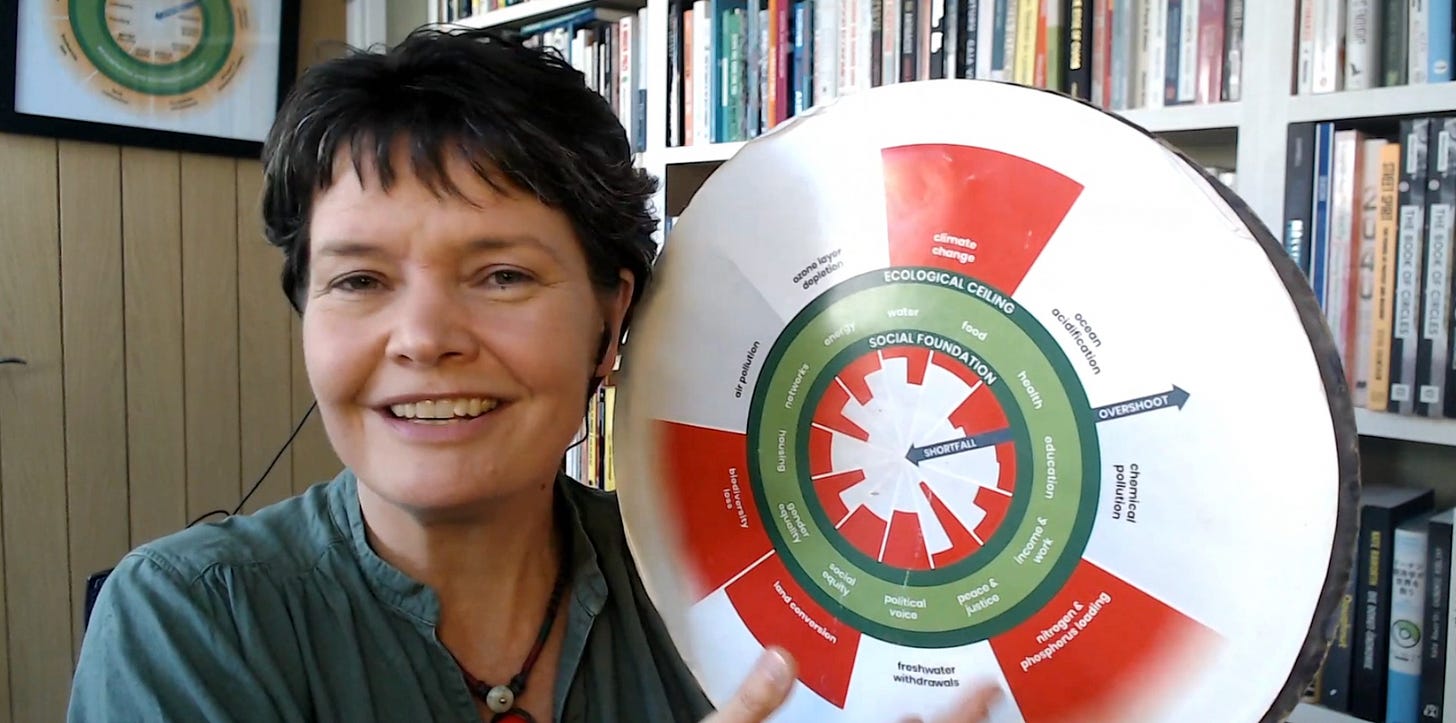This week…
Today, I am joined by the creator of Doughnut Economics, Kate Raworth, for a fantastic primer on the need for different economic measurements beyond the material wealth created by a society. As we expand further past planetary boundaries (currently overshooting 7 of 8 as of May 2023), the gap between the standard of living of the materially wealthiest and poorest continues to grow. Increasingly, these shortfalls in both ecological and social well-being of the current economic system are becoming more recognized by the general populace. In this conversation, Kate and I discuss a framework for bringing the human system in line with the biosphere while meeting the needs of everyone.
Kate Raworth describes herself as a renegade economist focused on making economics fit for 21st century realities. She is the creator of the Doughnut of social and planetary boundaries, and co-founder of Doughnut Economics Action Lab, based on her best-selling book Doughnut Economics: 7 Ways to Think Like a 21st Century Economist. Kate is a Senior Associate at Oxford University’s Environmental Change Institute, where she teaches on the Masters in Environmental Change and Management. She is also Professor of Practice at Amsterdam University of Applied Sciences. She is a member of the Club of Rome and currently serves on the World Health Organisation Council on the Economics of Health for All.
Can we create systems that keep people from falling down the cracks, while also respecting the limits of our planetary home? Are there governments and businesses already aligning themselves to these principles and shifting to a different way of leading? Could moving towards a holistic system, such as Doughnut Economics, be enough to overcome the energy hungry growth of a global Superorganism? Is the Superorganism in opposition to the Doughnut? A must watch episode.
In case you missed it…
Last Friday, I shared a personal reflection on the challenges of creating and broadcasting content focused on biophysical limits to growth. In a media industry (and culture) that promotes feel-good content, over-simplified narratives and easy answers, the themes we highlight on The Great Simplification can be complex, overwhelming, and leave more questions than answers. What should the goals be for sharing content on a theme that affects everyone and all current institutions and expectations? What are the pitfalls? How do the conventional social media rules apply to media that is so outside the norm? Most importantly, what is the best way to maintain credible, helpful, widely accessible, and factual information that can aid in steering society towards a gentler landing into The Great Simplification?
If you appreciate The Great Simplification podcast…
Be sure to leave a review on your preferred podcast platform! Leaving reviews helps the podcast grow, which helps spread awareness of our systemic situation from experts in ecology, energy, policy, economics, technology, and community building so that we can better understand - and respond to - the challenges of the coming decade.
The Great Simplification podcast is produced by The Institute for the Study of Energy and Our Future (ISEOF), a 501(c)(3) organization. We want to keep all content completely free to view globally and without ads. If you’d like to support ISEOF and it’s content via donation, please use the link below.






Great podcast! It’d be even more impressive in a round table setting where she’s sharing her views with other economists!
I agree! I’m curious what kind of conversation she would have with Mariana Mazzucato (author and LSE professor).